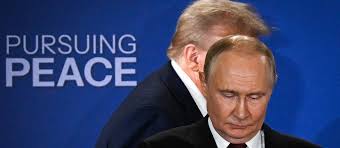
Introduction
The relationship between Russian President Vladimir Putin and former U.S. President Donald Trump has been one of the most polarizing political dynamics in recent history. As the world grapples with ongoing geopolitical tensions, understanding this relationship is crucial for analyzing international politics and global security. Recent events have reignited discussions surrounding their interactions, policies, and the implications for U.S.-Russia relations.
Past Interactions
The connection between Trump and Putin dates back to before Trump’s presidency, with both leaders often praising each other. Trump’s reluctance to criticize Putin was evident throughout his presidency, leading to scrutiny and debate over the integrity of U.S. foreign policy. Following the 2016 presidential election, allegations of Russian interference fueled an investigation that cast a shadow over Trump’s administration, further complicating their relationship.
Current Events
As of late 2023, recent diplomatic interactions have indicated a shift in the dynamics between Russia and the United States. With Trump now a public figure once again as he campaigns for the 2024 presidential election, Putin’s regime has continued its assertive foreign policy, particularly in Ukraine. Analysts suggest that Trump’s approach toward Russia may differ from the Biden administration, potentially redefining the U.S.’s response to Russian aggression.
At an international conference in September 2023, Trump made statements that seemed to downplay the severity of Putin’s actions in Ukraine, suggesting that a more diplomatic approach could be on the horizon if he returns to the White House. This proposal has drawn both support and criticism, highlighting the divide among voters regarding foreign policy and national security.
Implications for Global Politics
The tension between Putin’s Russia and the West continues to escalate amid military actions and sanctions. Experts believe the future of U.S.-Russia relations will largely depend on the outcome of the 2024 election and the policies adopted by the next president. If Trump regains office and places an emphasis on rebuilding relations with Russia, it may alter the current course of international diplomacy and potentially diminish NATO’s influence.
Conclusion
The relationship between Putin and Trump serves as a unique barometer for understanding U.S.-Russia relations. As discussions surrounding national security and foreign policy evolve, voters must consider the implications of these interactions on global stability. Regardless of the paths chosen, the repercussions of this complex alliance will be felt far beyond the borders of both nations. The unfolding political dynamics will undoubtedly shape the future of international relations in a complex and interconnected world.



